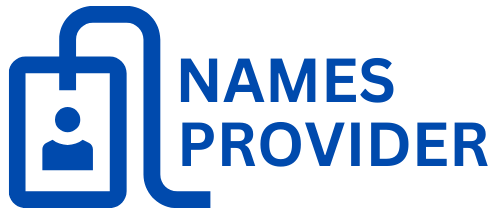Search for something on Google and you’ll see it’s not just a list of blue links anymore.
Instead, you’ll find AI-generated summaries, featured snippets, and results pulled from sources that really seem to know what they are talking about.
This is great since users find what they are looking for without scrolling down, which saves time.
But does this benefit businesses? Yes, but only if you crack the code to actually show up in those top spots. That sure isn’t easy. But we’ve got you covered with a few tips that can help you earn a place in AI search results.
#1 Frame Content To Answer Specific Questions
You can’t follow the same approach to writing content as you did in the pre-AI era.
Why, you may ask. It’s simple: AI search results, like Google’s AI Overviews, often provide direct answers right at the top of the page. They pull information from pages that clearly and concisely answer user queries.
Your content has a better shot at being featured directly in those prominent answer boxes if you frame it around commonly asked questions.
To find out what questions your target audience is asking, look at FAQs, social media comments, or support tickets for common questions.
When you identify the questions, answer them clearly. Put the answer right at the top of a paragraph, often in the first sentence or two.
Structure your content smartly. Use the actual question as a heading, like an H1 or H2 tag, in your content. This helps Google understand that your content directly addresses that question. For better visualization and reporting of keyword performance, consider using Looker Studio SEO templates to track your content’s search visibility.
#2 Build Topic Authority, Not Just Traffic
Topic authority means becoming the go-to expert on a specific subject, rather than just trying to rank for a few keywords.
Google’s algorithms now prioritize relevance and context over simply matching exact keywords, so the old “keyword stuffing” days are long gone.
This approach is better than just chasing traffic because it builds long-term trust and signals to Google that a website is a comprehensive, reliable resource. In turn, this leads to more consistent, high-quality organic traffic over time.
Content clusters are a powerful tool for building topic authority. According to Neil Patel, they help establish the depth and breadth of your expertise on a particular topic.
It is important to link these pillars and cluster pages together. These internal links help Google understand the website’s structure and the depth of its coverage on a particular topic. As a result, search engines see your site as an expert on the entire subject. This strategy boosts SEO, as it helps rank for many related keywords. If you’re not sure where to start, working with an experienced SEO freelancer can help you build a solid internal linking strategy and content map that aligns with your goals.
To create in-depth content, focus on rich analysis, expert interviews, data-driven content, technical deep dives, and regular series.
#3 Improve Your Site’s User Experience
You can’t skimp on user experience (UX) if you want to beat the competition in rankings. This is incredibly important because Google wants to show users websites that provide a good experience.
Google uses Core Web Vitals (CWV) to measure how users interact with pages. These metrics focus on three main aspects: how fast a page loads, how quickly it responds when a user interacts with it, and how visually stable the page is. Good CWV scores can give your site an edge over competitors.
Other important UX factors include mobile-friendliness and easy navigation. Overall site speed is also important; faster is always better.
If none of these aspects are up to par, it would be best to give your site a full refresh. Relaunch it using an AI-powered website builder.
Where a manual refresh takes months, AI website builders launch a professional website with good UX within minutes. These tools can automatically optimize layouts, improve loading times, suggest better navigation structures, and help with accessibility tweaks. That way, you don’t have to guess what works.
Codeless website builders are a great alternative to traditional website-building methods. But take care to choose the right one. Hocoos advises prioritizing SEO features besides ease of use because they are vital for improving the website’s ranking.
#4 Work on Your Backlink Profile
Backlinks are still one of the most powerful SEO signals and AI-powered engines treat them as a form of validation. They help AI understand the authority and trustworthiness of a site, which directly impacts visibility in generative search results.
However, you need to focus on genuine credibility, not manipulation. AI models were trained on the web, and backlinks shaped that web. When AI tools look for real-time information, they prioritize trusted domains. That trust is built through authoritative backlinks.
A strong backlink profile makes it easier for a brand to appear in AI-generated responses.
So, try to earn high-quality, relevant links through valuable content and genuine relationships. Avoid acquiring them for quantity or manipulating anchor text, which AI and Google can detect as spam.
Placement matters. Ideally, the link is within the article’s body. ‘Dofollow’ links are most influential for rankings. To earn backlinks ethically, create amazing content like original research or in-depth case studies. Consider guest blogging for reputable sites.
Climbing the online visibility ranks in the AI era is not about one trick, but consistently creating value across the board. The algorithms are constantly learning, so rankings can fluctuate as the systems get smarter.
Just stay consistent. Don’t chase every algorithm update or try to game the system. Focus on becoming genuinely useful to your audience, and the rankings will follow. It might take months rather than weeks, but the results will be more sustainable and valuable in the long run.




